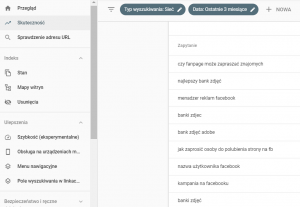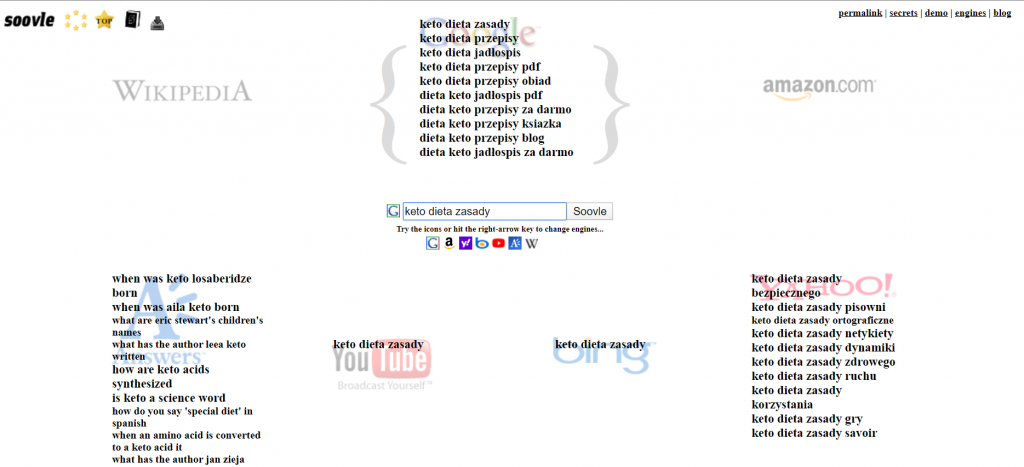Creativity and motivation. Two words that sometimes slip our minds. We are required to have both every day. How can you ensure peace of mind when it comes to blog post ideas? Just approach it systematically, do your homework from this article, and have a plan for the next six months or even a year. Read on to find out what activities will help you focus on creating the most important content for your readers.
Why is writing blog articles important?
Building Interest and Trust Through Blog Posts
First, if you create content that is valuable and needed, it will attract readers to your site. Articles are an easy way to direct your audience from the top and middle of your marketing funnel. This is an important part of building trust. Imagine someone typing “keto diet for active vegetarians” into Google. The results will show over 40,000 results. Let’s assume that the offender chooses your article. You’ve won life! They will read it, get interested, say under their breath “no, no, they have the knowledge, that ho ho!” Satisfied, they will go to your next article, this time with vegetarian recipes for the whole week.
You start to appear in his head as a brand that knows about diets, provides recipes (and we know that few people have time to come up with a menu these days). If you pass this test, this person will come back to you. And if you are a company with dietary catering or you are a psycho-dietitian, then in the future he may use your services.
Positioning your website through blog articles
Just writing an article isn't enough for you to make the recipient click on your link. It would be nice if that link appeared on the first page of the search engine. Well, at least on the second page. But on the first page is better. How to do that?
If you have never come across the concept of content positioning, I will briefly explain it.
Positioning is not one, but rather a collection of many activities that must be performed before, during and after writing a blog post. Thanks to them, you have a great chance that your posts will appear "high" in Uncle Google and thus increase traffic to the site. Next, pay attention to the key phrases that are supposed to "jump out" your post:
- Do the keywords appear in the title, in the introduction, in the subtitles, and in the body of the text?
- Do you use external and internal links?
- Do you start working on your blog by checking your data in Google Analytics, Google Search Console, Google search engine, or other sites that will allow you to check what language and keywords your audience uses?
- Do you vary the title depending on the location (blog title, URL, search results title, etc.)?
- If you have WordPress, do you use the Yoast SEO plugin?
- Does your website load quickly?
- Do you have a well-structured website?
Positioning is a vast subject, here I just wanted to highlight this aspect. The above bullet points are not all the elements of positioning. There is a lot more!
How to know what to write on your blog to attract readers?
I hope you already know why it's worth creating valuable articles. Good! Now it's time to solve another riddle: where to get inspiration for post topics? There are many ways! Below you will find a list of activities you can do and have a prepared plan for article topics for the next six months (at least!).
Creating a persona – or choosing a target group
In other words, the audiences you will be targeting with your content. If you haven’t done your homework on creating a brand strategy, now is the time to catch up.
Think about this:
- "why our company/brand exists",
- "for whom it exists",
- "what group's needs do we respond to?"
- "what challenges/problems does our persona have that we can solve."
Create 2-3 personas, give them names, write where they live, how old they are, how much they earn.
Interviews and surveys
Then, after creating the mockups, it’s a good idea to check if what you’ve come up with is reflected in reality. Reach out to your audience and send them an online survey or conduct in-depth interviews (or better yet, combine the two).
In the survey, prepare both open and closed questions, as well as single and multiple choice. Arrange them so that at the end you get answers that will revise your assumptions about each persona.
In in-depth interviews, you can allow yourself to ask questions and elaborate. Such conversations often bring up a lot of topics that could be suitable for a blog post.
In both surveys and interviews, it’s good to include questions that will help you identify topics for your blog, such as:
- What knowledge about healthy eating are you missing?
- What sports topic have you recently had a problem with? (exercise, stabilization, motivation)
- What challenges do you face at work when it comes to team management?
Finally, it is important that after analyzing the surveys and interviews, you go back to the previously prepared personas and add any necessary new information or remove any information that turned out to be incorrect.
A useful tool for creating blog topics – Value Proposition Canva
It is best to use different canvases to describe and visualize a persona. I will share with you one of the many we work on at KomuKoncept: Value Proposition Canva, or Value Proposition Template, which looks like this:

First, start by describing the person, then go through the tasks to be done, the pains, and the potential benefits. Then fill in the square. You'll have a beautiful canvas that will be a great tool to reach for as you work on your content plan.
Insight, observation in natural environment, social listening
Insight, or simply a quote from the client. The actual words, sentences that your persona uses. Where do you get it from? Partially, you already have it – read the surveys and interviews and extract the sentences, fragments of sentences that best describe the topic (the client's problem, their thoughts, opinions, beliefs).
In addition, you can use the Internet and do the so-called "social listening", i.e. listening to what recipients are already saying about your brand. You can do it "manually" by checking opinions and reviews on Google or Facebook. You can also use tools that, for a small fee, will monitor the entire network and search it for keywords for your brand. We recommend in particular Brand24, SentiOne Whether Newspoint.
It is important to listen to your audience not only on the Internet. If you have the opportunity to “listen” live, because you run a restaurant, a shoe store or a clinic, it is your duty to listen to your customers. Ask them directly, observe them from the background. Pay attention to how they behave, what irritates them, whether they leave you satisfied.
The Power of Search Engine Keywords – Blog Ideas at Your Fingertips
It's a mine of knowledge and inspiration. Internet users, willingly or unwillingly, leave you with a lot of topics that you can write about on your blog. Before you start writing content, do the following.
What does the recipient need? Ask Google
Just type in Google the topic you are interested in or one that your audience might be interested in, e.g. "vegetarian diet" and scroll to the bottom of the first page of results:

You will see a beautiful list of suggested entries that are related to the main entry. Several additional topics with titles are ready!
Google Search Console
Google Search Console is a tool from Google that will help you optimize your site in the search engine. A very cool feature of GSC is the "Effectiveness" tab, where you can analyze what terms your recipients find your site through.

Keyword Planning Tools
Soovle shows results from Google, Yahoo, Bing, YouTube, Wikipedia and Amazon.


AnswerThePublic is a tool that, in its free option, allows you to enter several entries and receive results for them. All you have to do is select the country and language and enter the entry you are interested in. To illustrate, we entered the entry "allergy" and here are the results we got:


AnswerThePublic gives you results in several categories: questions, comparisons, prepositions, related, and alphabetical list. This is another treasure trove of knowledge for your article ideas!
In addition to these tools, check out:
- Google Keyword Planner – you will find it in your GoogleAds account,
- Keyword.io,
- Google Trends.
With the above tools at your disposal, you will break the bank and improve the visibility of your blog posts as well as find topics tailored to what users are currently searching for.
Examples of blog post topics and types
I won't leave you at the beginning of the journey with nothing. I've prepared a short list of topics and types of posts that will help you plan your next blog activities.
- Interviews – Interview people in your industry. You’ll gain additional reach for your posts if the person you interviewed shares it on their blog.
- Expert Articles – you don't have to create everything yourself. Invite people who are looking for places where they can demonstrate their knowledge to collaborate.
- Instructions and recipes – anything that starts with the words “how” is valuable.
- Letters, ideas – 27 ideas for decorating your Easter table.
- Book recommendations – apparently Poles like to read books, but this is not visible in the annual statistics.
- Presenters – an incredibly useful thing for busy readers. You take the time to choose gems for gifts, and they are grateful to you for the rest of their days.
- Stories, cases – “how Filip earned 10 million in 3 months”, “Get to know the stories of clients who lost weight thanks to our diet”.
- Tools for… – remote work, teamwork, creating strategies, assembling a bike, photo editing, monitoring habits.
- Rankings – “best sites for keyword research”, “14 places you must visit in southern Poland”.
- News – from the industry, from your topic.
- Downloads – cleaning lists, 3 keto diet recipes, weekly training plan, checklists.
- Tests – impressions of using phones, computers, clothes, cars, bikes, applications.
Summary
I hope that the above “teaching aids” will make your blogs full of valuable content for your customers. It may seem like a lot. Surveys, interviews, tools, observations. Well, I believe that the more work you do before you start writing articles, the better quality and tailored to your target. It is worth spending time building a proven database of topics!
Want more? Read our other articles:
- Written by: Ola Dzwierzyńska
- Posted on: May 7, 2020
- Tags: SEO

